On June 2, on the occasion of the third anniversary of the Alliance of the Environment Deans, the Second Dean's Forum of Environment Schools (DFES) organized by Tongji University was held online. A Green Belt and Road Joint Research Initiative was released at the forum. This was also one of a series of academic activities to celebrate the 115th anniversary of Tongji University.
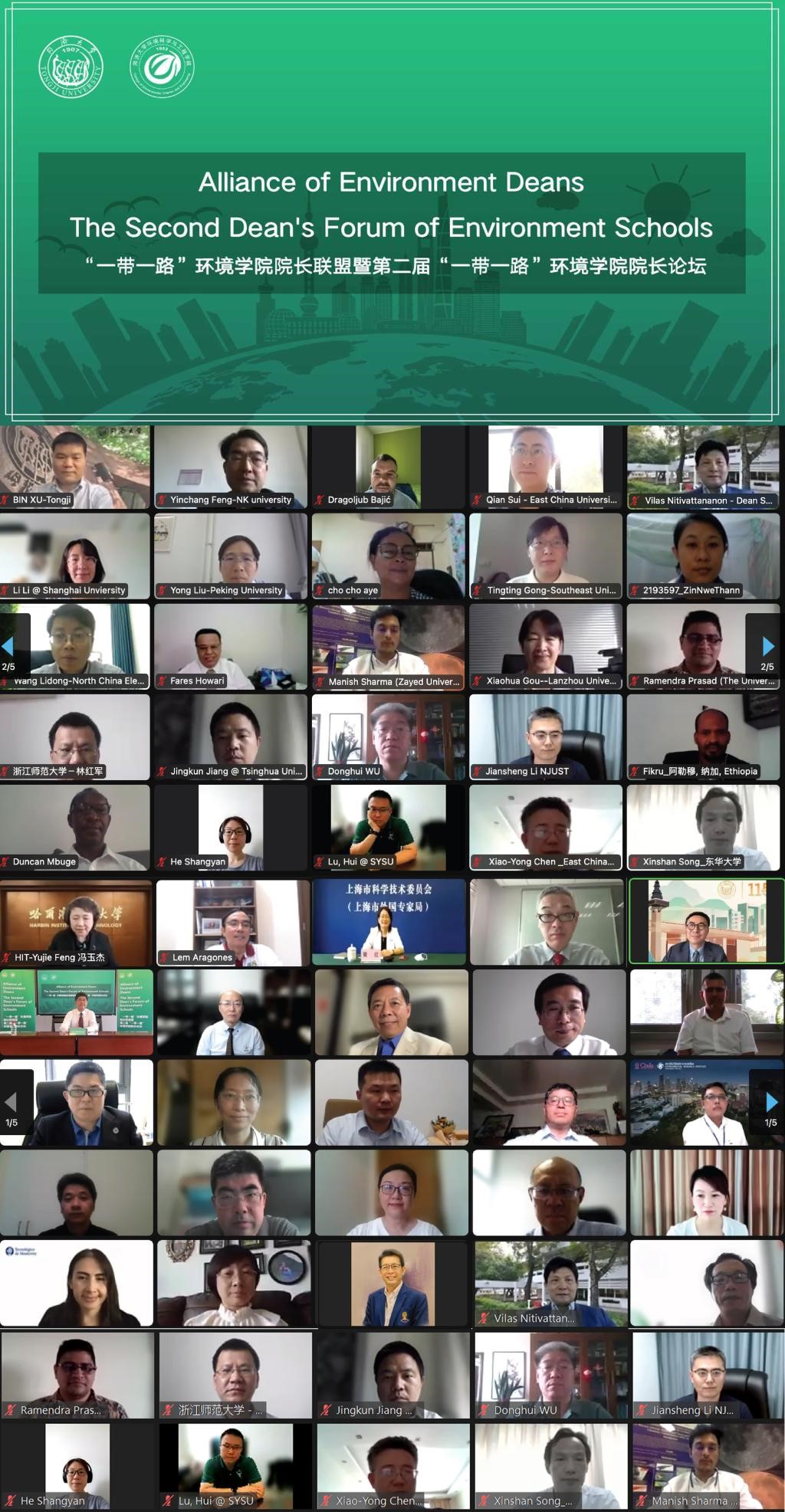
Participants at the Second Dean's Forum of Environment Schools online
Dean of the International Research Institute of Green Belt and Road Development and former director of the International Cooperation Department of the Ministry of Ecological Environment GUO Jing, deputy director of the Shanghai Commission of Science and Technology and deputy director of the Shanghai Bureau of Foreign Experts HUANG Hong, and executive vice president of Tongji University LV Peiming delivered speeches respectively. Former Tongji executive vice president and president of Yangtze River Delta Institute for Sustainable Development WU Jiang, 33 deans from 28 universities in China, 34 deans from 28 universities of 24 countries abroad, and representatives from related adminstrative offices of Tongji University attended the forum. The opening ceremony was chaired by LOU Yongqi, vice president of Tongji University.
GUO Jing remarked that the strategic goal of the the Belt and Road initiative was to establish a community of shared interests, destiny and responsibility featuring political mutual trust, economic integration and cultural inclusion. He believed that DFES would inject new vitality into promoting green and low-carbon development of countries along the Belt and Road and improving more environmental cooperation.
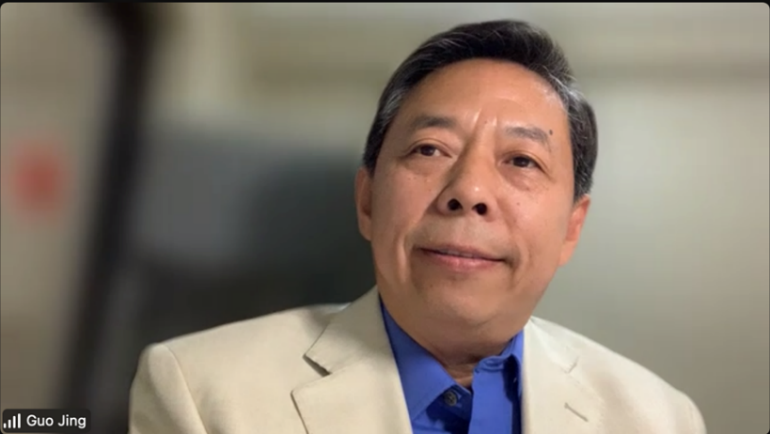
GUO Jing at the forum
According to HUANG Hong, Shanghai is a bridgehead serving the development of the Belt and Road initiative. Over the years, Shanghai has played a leading or supporting role in scientific and technological innovation. The Shanghai Commission of Science and Technology (Bureau of Foreign Experts) has provided long-time support to various organizations, including Tongji University, for their joint laboratories and technology transfer platforms with countries along the Belt and Road to serve the high-quality development of the Belt and Road Initiative. DFES will become a bridge to continue to promote green and low-carbon development, deepen friendship and expand cooperation.
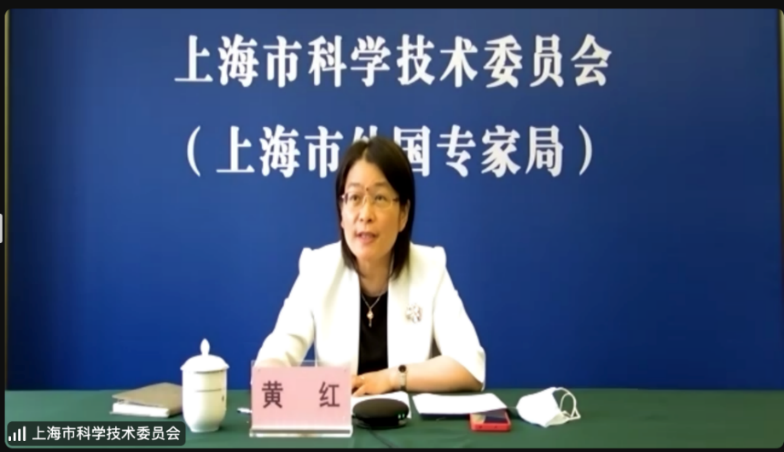
HUANG Hong delivering a speech
LV Peiming said that over the years, Tongji University has made fruitful research achievements on issues related to regional response to climate change and low-carbon development, and has infiltrated the responsibility of sustainable development into its practice of building a world-class university. Tongji University will continue to dig into the green connotation of sustainable development, and is willing to continue to work together with member units of the dean's Alliance of Environment Schools around the world to add new momentum to further promote sustainable development in the new era.
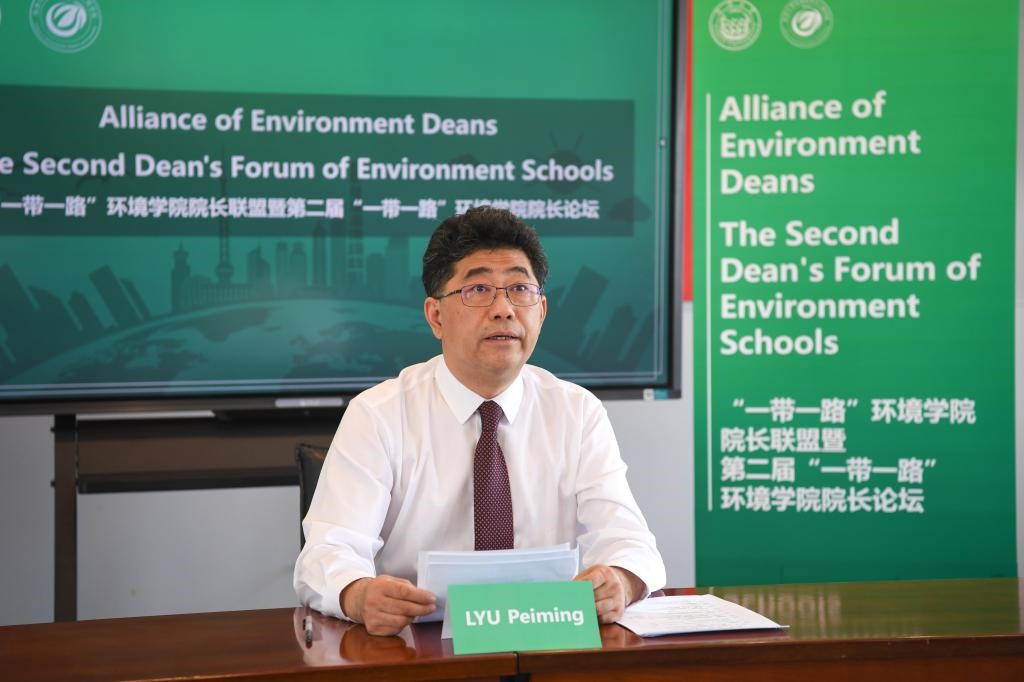
LV Peiming at the forum
Director of the 21st Century Agenda Management Center of the Ministry of Science and Technology HUANG Jing, vice president of the Monterrey Institute of Technology and Higher Education, Mexico Inés Sáenz Negrete, and former executive president of the Asian Institute of Technology Mario Tabucanon delivered keynote speeches respectively.
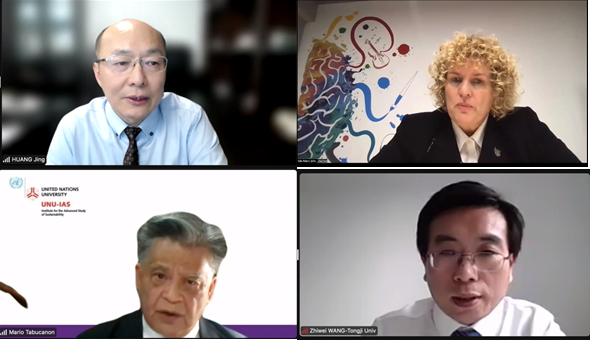
HUANG Jing, Inés Sáenz Negrete and Mario Tabucanon delivering speeches at the forum
Huang Jing pointed out that in the context of global green and low-carbon transformation, it has been the common demand and goal of all parties to build the the Belt and Road into a green development road and let the concept and practice of green development and ecological civilization benefit the countries and people along the Belt and Road. The development of carbon neutralization technology system needs to be based on China's basic national conditions; and a technical system layout from low carbon to zero carbon and negative carbon is to be established on the basis of an analysis of the demand and development trend at both the energy supply side and the consumption side. We got to pay attention to systemic solutions to strengthen coupling optimization and synergy, and develop energy-saving and efficient low-carbon technolgy, zero-carbon power and non-power energy technology, fuel cell raw material substitution technology, non-carbon dioxide greenhouse gas reduction technology, CCUs (carbon capture, utilization and storage) technology, negative-carbon technology and integrated coupling and optimization technology.
Inés Sáenz Negrete took the Monterrey Institute of Technology and Higher Education, Mexico, as an example for an illustration of higher education and sustainable development. As the largest private university in Latin America, the Monterrey Institute of Technology and Higher Education aims to cultivate students' international vision, leadership, social responsibility and entrepreneurial culture, and has cultivated leaders of successful enterprises in Mexico and Latin America. The Institute has been committed to promoting the implementation of global higher education and sustainable development, striving to shift from traditional teaching to higher education experience with reasonable teaching methods and technology support.
Mario Tabucanon made a keynote report entitled "the United Nation’s sustainable development goals and the role of higher education". He emphasized that as a knowledge producer, higher education may become a powerful means to help create a sustainable future. Therefore, with the economic globalization and interdependence, the role of sustainable development education in higher education will become more and more important.
A Round Table Dialogue was organized for the deans. Dean of the College of Environmental Science and Engineering of Tongji University WANG Zhiwei remarked in his opening speech that climate change was a major issue and challenge faced by further development of the Belt and Road, which called for joint response of the international community and attention to the combination of water security and low-carbon technology. He introduced China's efforts in coping with the water supply crisis caused by climate change and the development of sustainable urban water system in the future by citing as an example the zero-carbon demonstration community of the Institute for Sustainable Development in the Yangtze River Basin and the Yangtze River Delta. Deans of environmental schools from Bangladesh, Kenya, Serbia, Thailand and other universities from China had heated discussions on climate change and sustainable water systems in major cities along the Belt and Road and the green Belt and Road Joint Research Initiative. At the closing ceremony of the forum, the deans of environment schools from different countries released the Green Belt and Road Joint Research Initiative and Charter of Alliance of Environment Deans 2022.
In December, 2018, with the support of the Ministry of Ecology and Environment, China, Tongji University initiated and established the Alliance of Environment Deans, which aimed at strengthening the cooperation and exchange between the environment schools of countries along the Belt and Road in environment and related disciplines, and deepen the cooperation of the Belt and Road in environmental science and technology. Research and teaching cooperation agreements were signed among members of the Alliance, involving water treatment technology, solid waste management and sustainable urban planning. The Alliance has made contributions to the green Belt and Road development.